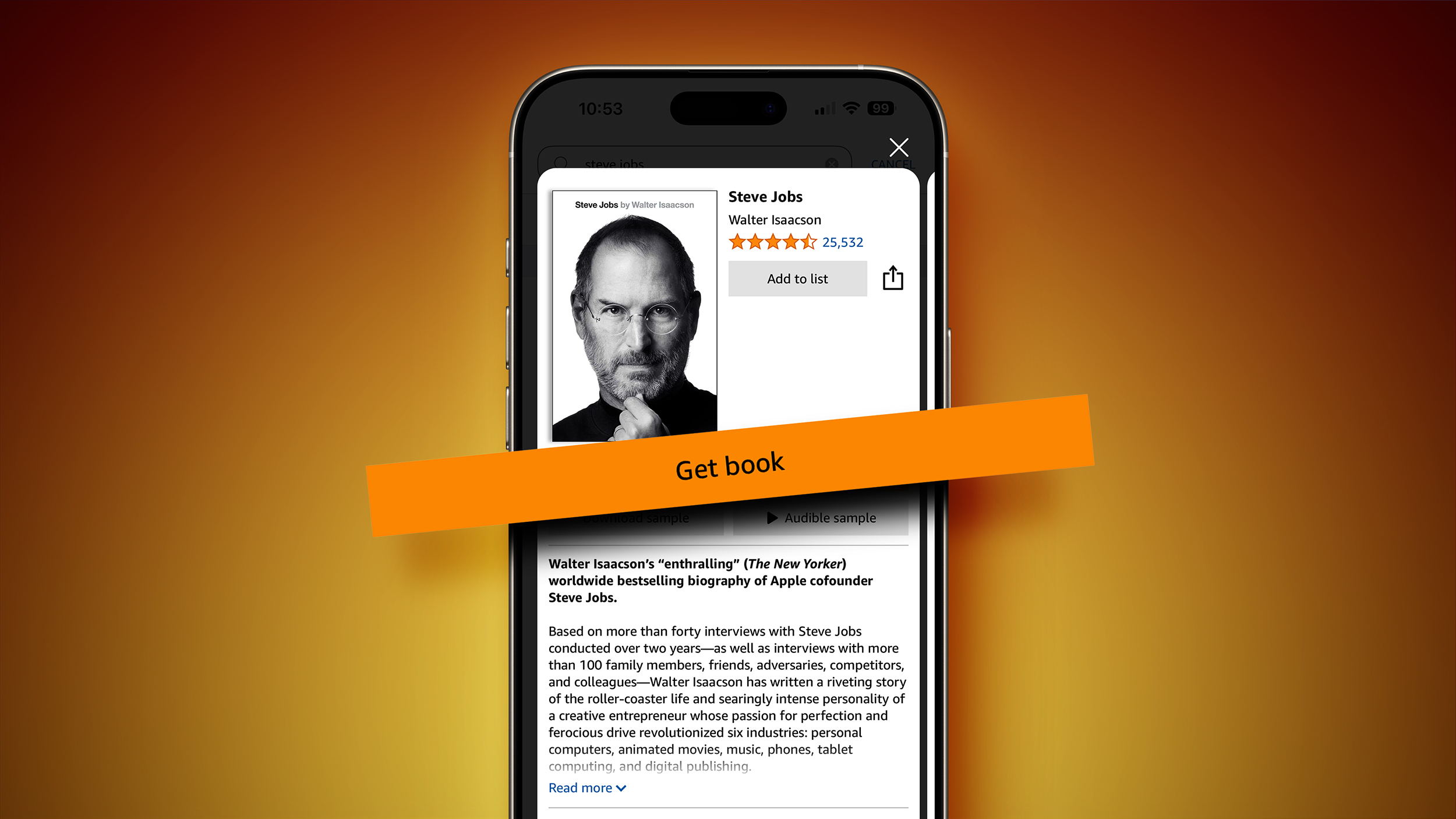
Amazon has updated the Kindle app for iOS to include a new "Get Book" button that links users directly to purchase pages on Amazon's website, following a recent court ruling that prohibits Apple from blocking external purchase links or imposing a 27% commission on them (via The Verge).

The change to the Kindle app was made in response to a contempt order issued on April 30, 2025, by Judge Yvonne Gonzalez Rogers in the ongoing litigation between Epic Games and Apple. According to the court order, Apple is barred from continuing to enforce App Store rules that previously prevented developers from directing users to external payment methods.
For more than a decade, Kindle app users on Apple devices have been unable to purchase e-books directly through the app. Beginning in 2011, Apple began enforcing guidelines that required developers to either use Apple's in-app purchase system (incurring a 30% commission) or remove any links, buttons, or instructions that would guide users to alternative purchasing methods. As a result, the Kindle app became limited to browsing owned titles, downloading samples, or managing a wish list, while actual purchases had to be completed manually through Amazon.com in a browser.
The update released this week introduces a prominent orange "Get Book" button next to book listings inside the Kindle app. When tapped, the button opens the user's default mobile web browser and navigates directly to the corresponding Amazon product page, with the Kindle edition of the book pre-selected. Users can then complete the purchase using Amazon's standard web-based checkout process. After the transaction, the book is automatically synced to the user's Kindle library and becomes available for immediate reading within the app. An Amazon spokesperson confirmed the change in a statement to The Verge:
We regularly make improvements to our apps to help ensure we are providing customers the most convenient experience possible. By selecting "Get Book" within the Kindle for iOS app, customers can now complete their purchase through their mobile web browser.
This is the first time since the enforcement of Apple's in-app purchasing restrictions that Kindle users on iOS have had a direct route from the app to Amazon's store. Previously, the lack of in-app purchasing or even external linking meant users had to manually search for titles in a separate browser session.
While Apple has filed an appeal against the court ruling, it is currently complying with the order. The judge declined to stay the ruling during the appeals process, meaning companies are now able to implement new payment flows unless a higher court reverses the decision. In addition to Amazon, Spotify has announced similar changes, and other developers are expected to follow.
Article Link: Kindle App Gets Biggest iOS Change in Over a Decade

